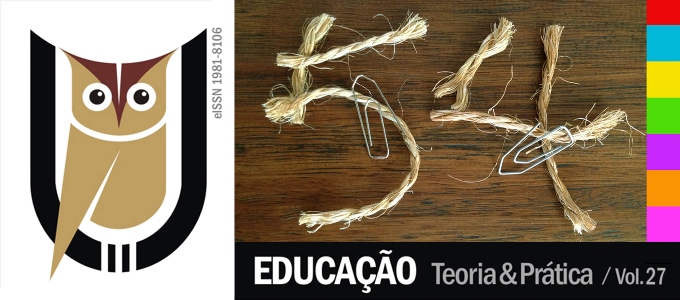THE USE OF (AUTO) BIOGRAPHY IN BRAZILIAN RESEARCH (2001 - 2010): THE CONSOLIDATION OF A METHODOLOGICAL TREND
DOI:
https://doi.org/10.18675/1981-8106.vol27.n54.p175-193Keywords:
(Auto)biography. Scientific Production. Human Sciences. Educational Field.Abstract
The objective of this research is to present a mapping of literature that allows giving visibility to the use that was made of the theoretical-methodological (auto) biography by Brazilian researchers in the period of 2001 - 2010. It seeks to show the movement that consolidated this resource as a methodological tendency in the mentioned period in the scope of the epistemological history produced in such time in Brazil, in the Human Sciences and in the Educational Field. This is a documentary research. The Coordenação de Aperfeiçoamento de Pessoal de Nível Superior (CAPES) database was used. The data indicate that the use of this methodological resource consolidated a methodological tendency within the scope of the epistemological history produced in Brazil at that time, encompassing the Human Sciences in general and the Educational field in particular. In this sense, in the decade in question, the anual average production was 74 estudies. Moreover, the data showed the nuclear institutional niches of the consolidation of the trend. Keywords: (Auto)biography. Scientific Production. Human Sciences. Educational Field.Additional Files
Published
How to Cite
Issue
Section
License
Authors who publish in this journal agree to the following terms:
a) Authors assign copyright to the journal, with the work simultaneously licensed under the Creative Commons Attribution License that allows sharing of the work with acknowledgment of authorship and publication in this journal.
b) The policy adopted by the Editorial Committee is to assign copyright only after a period of 30 months from the date of publication of the article. After this time, authors interested in publishing the same text in another work must send a letter to the Editorial Committee requesting the release of the assignment of copyright and wait for a response.
c) This journal provides public access to all its content, since this allows greater visibility and reach of published articles and reviews. For more information on this approach, visit the Public Knowledge Project, a project that developed this system to improve the academic and public quality of research, by distributing OJS as well as other software to support the public access publication system to academic sources. The names and email addresses on this website will be used exclusively for the purposes of the journal and will not be available for other purposes. This journal provides open any other party  This work is licensed under a Creative Commons License
This work is licensed under a Creative Commons License











